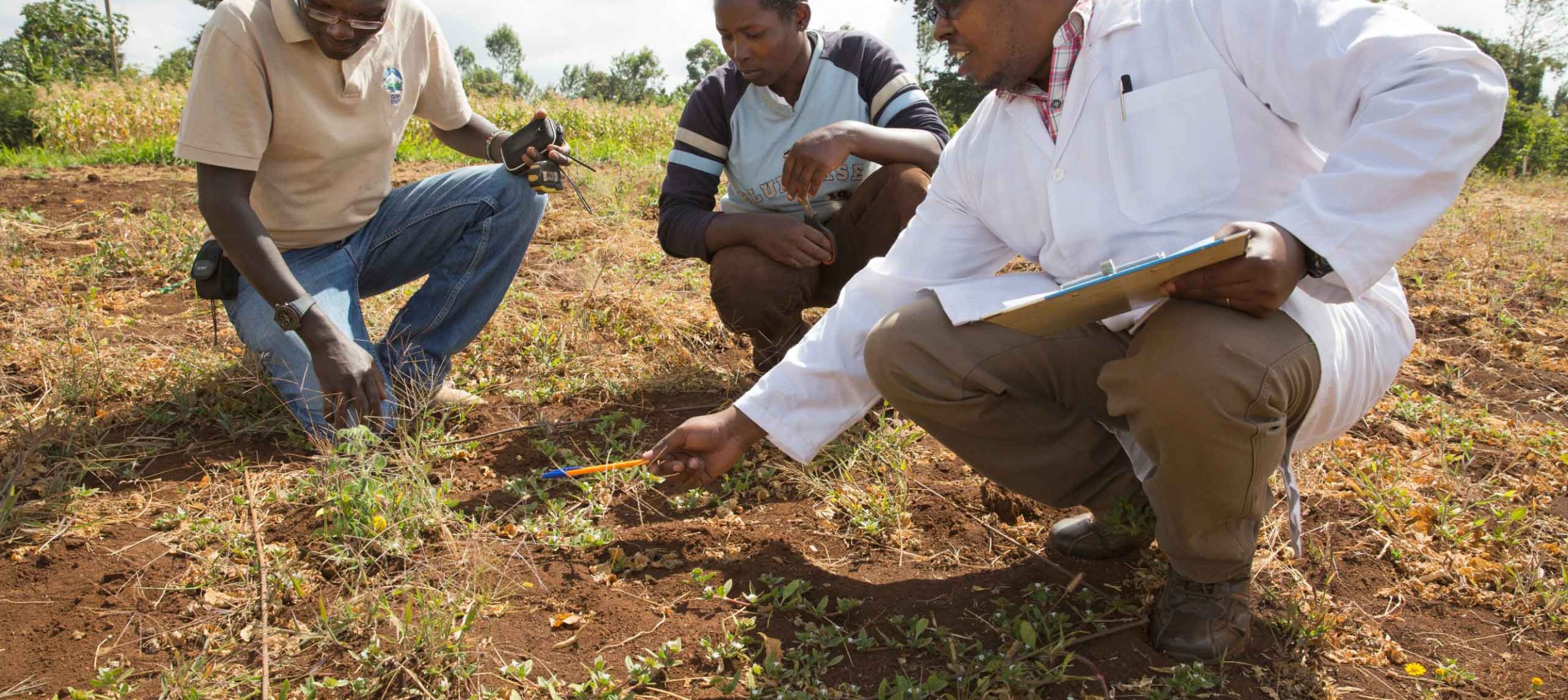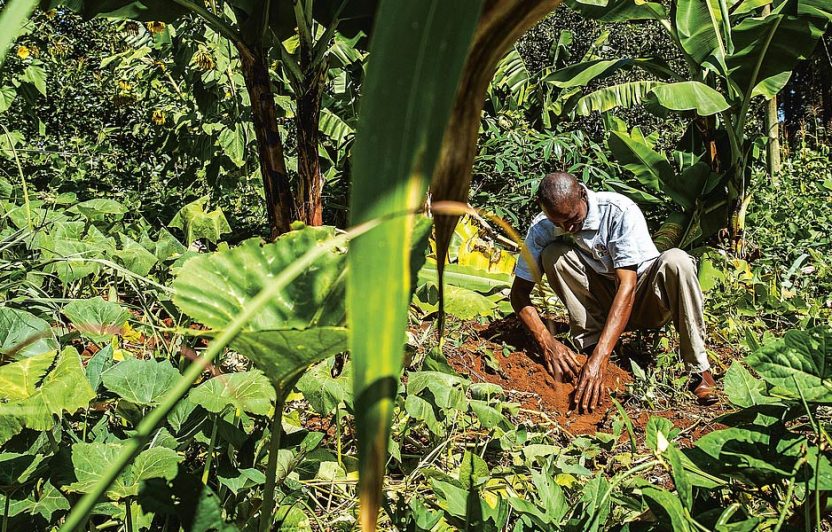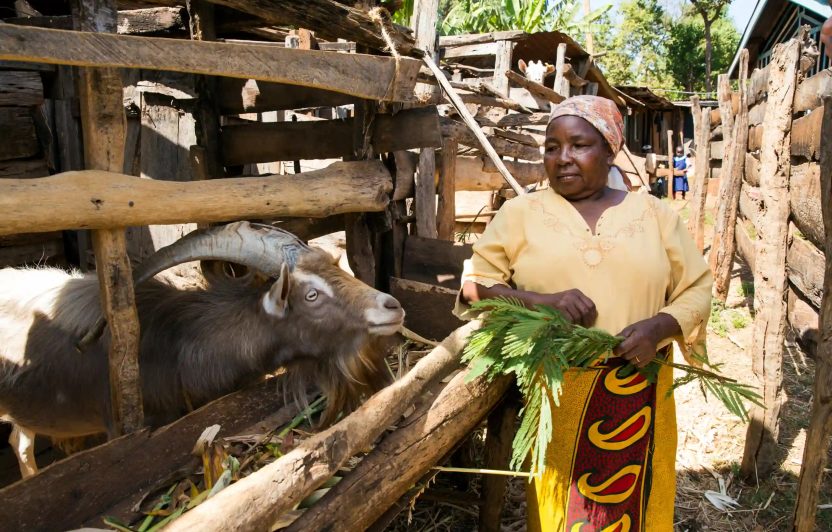






Did you know that in Kenya Toggenburgs are famous and extremely popular? We are not talking about champion wrestlers or ski jumpers but the variety with a beard, horns and four legs: Toggenburg goats are highly sought after by small-scale farmers in Kenya, who value their high milk yield. Josephine Ithiru, a 70-year old grandmother from Chuka is proud of her small herd. The nine goats live in a carefully constructed timber shed, which scores highly in terms of hygiene, animal health, manure and a clean environment for milking. Josephine uses the goats’ milk for her family, and sells the young bucks for a good price at market.
Recently, she has been investing more time in the daily collection of goat manure. She adds it to the compost or makes liquid manure. “This is something new for me,” she says and stresses that her maize and bean harvests are much better than before. Previously, she used artificial fertilisers but they were expensive and the yields remained modest. For the last few years, Mrs Ithiru has been one of 60 small-scale farmers participating in the project “Longterm system comparison” run by the Swiss Research Institute of Organic Agriculture (FiBL) and supported by the Biovision Foundation, the Swiss Agency for Development and Cooperation (SDC), the Liechtenstein Development Service (LED) and the COOP Fund for Sustainability. This long-term, scientific study is systematically comparing ecological and conventional methods of cultivation in the tropics under similar conditions.
“Organic agriculture is analogue”
Josephine Ithiru has tested the inputs and outputs of various fertiliser mixes with varying compositions. By the end of the first phase of the project, she had concluded that organic cultivation was the better way. The assessment by the research scientists was slightly more nuanced. They concluded that organic cultivation in the tropics produced yields similar to those with conventional methods but in the longer term, organic farming produced higher incomes for farmers.
Josephine receives regular visits from others in the neighbourhood. She shows them her trial fields and tells them about the benefits of organic methods. “The people are always very impressed,” she says. However, she believes that for some, particularly young people, organic methods appear cumbersome. “It is difficult to reach young people. Organic farming is analogue,” muses the farmer. “Young people want quick, digital solutions”. As she says this, she waves the bundle of greenery in her hand in front of the Toggenburg goat. He needs no second invitation and immediately starts to nibble the leaves. “Truly analogue,” smiles Josephine. “He knows what it’s all about …”



